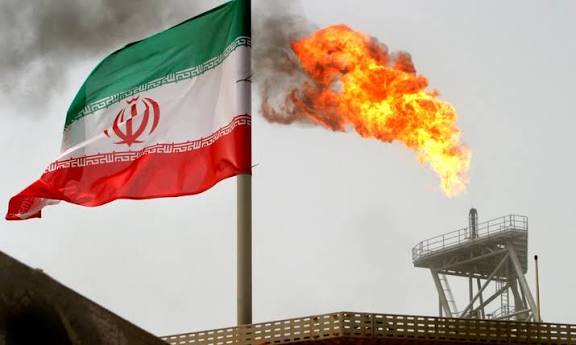More than 50 Nigerian manufacturing companies have shut down in the last five years, according to investigations.
Some of the manufacturing companies that have exited the industry in the last five years include: Surest Foam Limited, Mufex, Framan Industries, MZM Continental, Nipol Industries, Moak Industries, and Stone Industries.
Others are: Solo Industries, Quick Born Industries, Supercor Industries, Arabi Industries, and Rola Industries.
The PUNCH also found out that Peak Aluminium, Phonenix and Wise Machine Industries are no more functional, according to our investigations.
In an earlier report funded by the International Centre for Investigative Reporting, our correspondent had found a list of recently shut-down industries to include: Louis Carter Limited, Sky Aluminium, Grief, Errand Products, Technoflex, Gorgeous Metal, Mother’s Pride, including the Industrial and Foam Equipment, Deli Foods, Universal RubberErrand Products, Technoflex and Universal Rubber.
These industries are located in Lagos, Ota (Ogun State), Agbara(Ogun State), Jos (Plateau), Bauchi, Kano, Nnewi (Anambra State) and other parts of Nigeria.
The PUNCH checked the websites of these firms and found that many were no more functional. Even the contact phone numbers on the websites of many of them were not going through. In some cases, the telecoms companies informed our correspondent that the numbers did not exist.
In the last five years, two of the biggest manufacturing companies that closed down their manufacturing plants are Procter & Gamble and GlaxoSmithKline.
In 2014, Procter & Gamble, also known as P& G, set up a $300 million diaper plant at Agbara, Ogun State. But three years later, the plant was shut down due to what the company described as “restructuring”.
Similarly, GSK Nigeria closed down its drug manufacturing plant at Agbara, Ogun State, in the third quarter of 2021, and moved into a contract manufacturing alliance with Fidson Healthcare.
“Following an extensive review of its product supply operation, the Board of Directors has approved a restructuring of GSK’s current operating model to better serve the Nigerian patients and consumers. The restructuring, which will be effective in Q3 2021, involves working with local contract manufacturers for the supply of GSK’s products, where possible. This will support the building of local expertise, transfer of technical knowledge, and improve local production capacities in the country,” the drugmaker had announced in 2018.
Some of the manufacturers whose firms were shut down blamed the demise of their firms on the foreign exchange policies of the Nigerian government and the poor operating environment.
The Chief Executive Officer of Kenfrancis Frams, one of the moribund firms, Mr Ifeanyi Okereke, told The PUNCH that his agro-based company was shut down due to the foreign exchange crisis bedeviling the industrial sector.
He said,” We started in 2016, believing in Nigeria and hoping that we could process agro products and export. But getting raw materials to carry out this objective became a problem. Our cost of production skyrocketed and, at a point, it became clearly impossible to continue operations.”
He noted that many more industries had shut down because of the foreign exchange crisis and poor industrial plan.
He said, “Your cost of production as a manufacturer or agro processor can only continue to rise because you pay heavily for energy, water, logistics, port demurrages and then source your foreign exchange from the black market at over N570/$. Why then would you survive?”
The General Manager of Louis Carter Industries, one of the moribund companies that was producing plastics, Mr Ndubuisi Okoli, said that the energy crisis led to the death of the company.
“The Enugu Electricity Distribution Company was not providing us with adequate power. That was our major reason for going under, “Okoli said.
The Chief Executive Officer of Moak Enterprises, a bottled water company that shut down in 2021, Olatunde Akintunde, revealed that high cost of raw materials killed off his company.
He disclosed, “It was difficult for us because the cost of our raw materials increased four-fold, leading to the high cost of production. The business was no more sustainable, so we had to go.”
He berated the current administration for poor management of the foreign exchange market, stressing that “ I have not seen this kind of economic management in my life.
“Things were better before the administration came on board, which was why I started this business on 2014. But it is very difficult to understand what is going on now.”
Players in the manufacturing sector told The Punch that the number of shutdowns could be more than 50, considering the impact the foreign exchange crunch has had on manufacturers.
According to MAN, the average interest rate charged on manufacturers in 2020 was 22 per cent and over 20 per cent in 2021.
Capacity utilisation, which examines the rate at which manufacturers make use of their installed capacity, has not reached 60 per cent in over 10 years. It was 49.5 per cent in 2020, according to MAN. Capacity utilisation in South Africa was 82 per cent in 2021.
In a recent CEO Confidence Index conducted by the Manufacturers Association of Nigeria, more than 50 heads of corporate organisations suggested ways of preventing factory shutdowns and galvanising the manufacturing sector.
They said, “Government must incentivise investment in the development of raw materials locally through the backward integration and resource-based industrialisation initiatives.”
They urged the government to ensure effective allocation of available forex to productive sectors, particularly the manufacturing sector while sustaining the eligible customer initiative to ensure that more electricity was supplied to the manufacturing sector.
They further said, “It is important to strengthen the Bank of Industry and Bank of Agriculture to adequately provide liberal finance for the manufacturing sector.
“It is also important to monitor the implementation of Executive Order 003 to ensure compliance by MDAs so as to boost activities in the manufacturing sector.”










